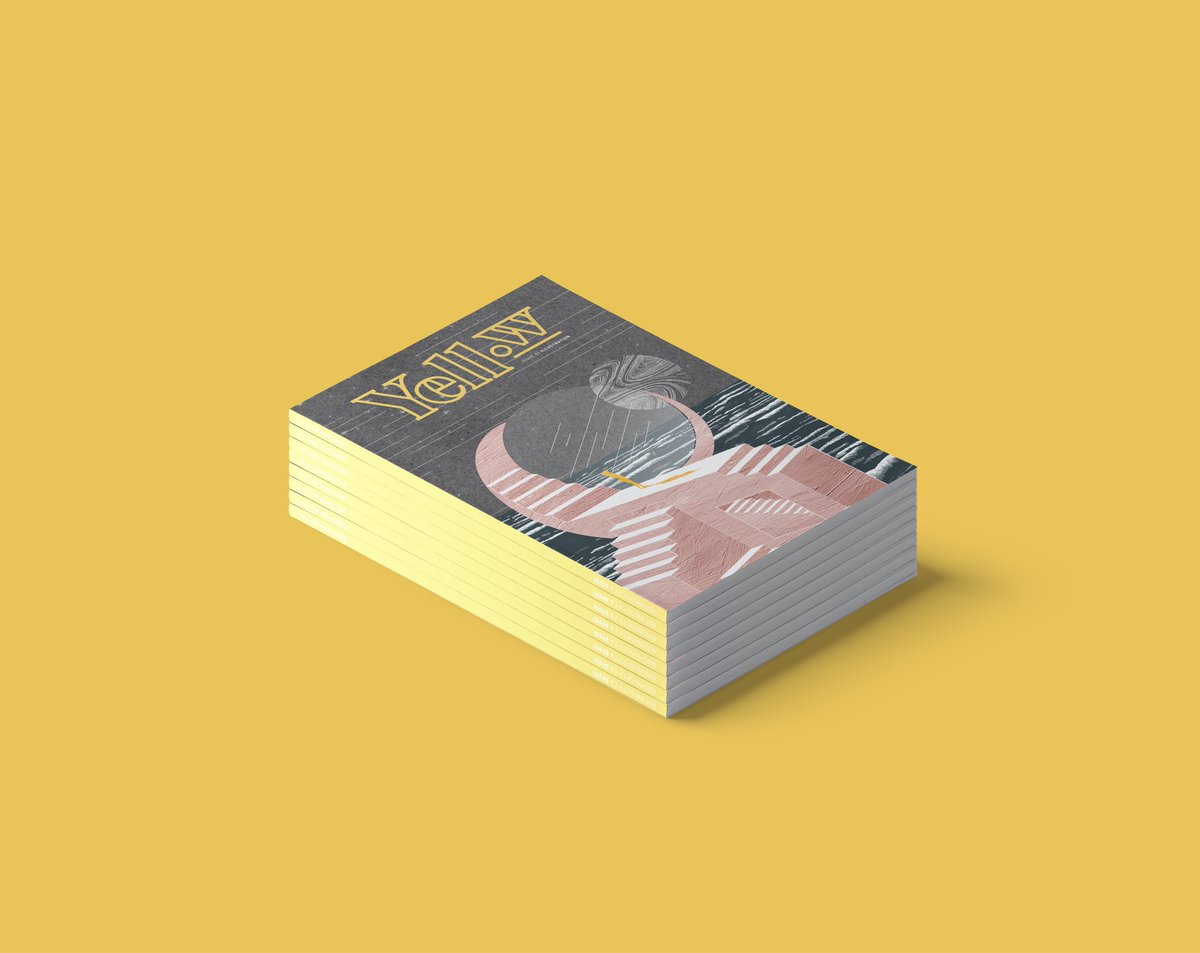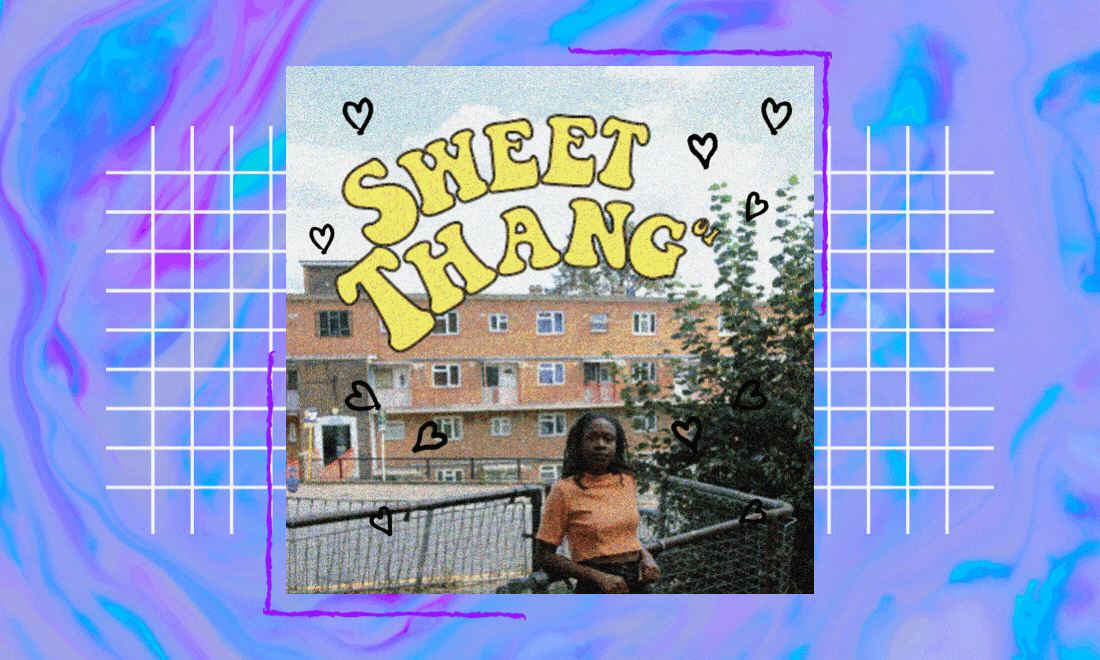
12 mags, zines and comics by people of colour that you need in your life
While the world burns, writers, poets, artists, and thinkers who are pouring their activism and compassion for the world onto pages help to extinguish the fire.
Neelam Tailor
21 Feb 2022
When mainstream media leave you feeling cold, grassroots POC-run publications and zines are a life-affirming and exciting alternative.
Whether it’s to dive into the world of comfort food from different cultures, flick through a comic that expresses weird thoughts you’ve never said out loud, or connect with people of colour fighting for freedoms around the world, you can find it amongst the incredibly creative, powerful, and safe pages of these POC-run publications. Here are some incredible mags, zines, comics, and online publications run by people of colour that are essential for your sanity … and the revolution.
BuliLit
Sampaguita Press, a nonprofit group and micropress publishing house based in California, launched a line of poetry-focused zines called BuliLit to “challenge capitalist power structure”. The books are made by hand at the homes of people in the group, and their first issue, titled Sobbing in Seafood City, is due to be published this March. It will feature art that explores food, grocery stores, and culinary traditions across cultures, and a portion of sales will be donated to Typhoon Odette relief in the Philippines, as well as workers’ rights funds in the U.S.
The mainly self-funded zine still pays contributors a fee and their submission calls are open to BIPOC artists only, while prioritising underrepresented identities within BIPOC communities, such as artists of LGBTQIA+, neurodivergent, and D/disabled backgrounds.
When asked how she hopes people will feel after reading BuliLit, Multimedia editor Nashira de la Rosa says, “A simultaneous sense of comfort and power: like your beloved childhood experiences rewinded; like the creative ideas swirling in your head are worth sharing, no matter how niche — whatever reflections you’ve scribbled in your journal could be someone else’s new favourite poem.”
Every BuliLit release will be celebrated by a virtual open mic showcase of their published artists reading their work, so follow them on Twitter and Instagram to keep up with their announcements.
I’m not busy, but I’m not free
The title of Anu Ambasna’s comic collection already captures the zeitgeist of everyone’s mood during the pandemic, and the 44 pages of the NTS DJ’s playful illustrations are silly, fun, and deeply relatable.
A highlight in the zine is her first long-form comic, ‘Corporate Fatigue’, which muses on office life, Zoom calls, and other relatable scenes from that 9-5 life.
“I hope that people will get a lot of joy and laughter from reading I’m not busy, but I’m not free! I also hope that they’ll be able to relate to at least one comic in the zine — I think there’s something for everyone in it,” says Ambasna. “I felt really proud of myself after publishing the zine — it felt special to hold something physical containing all the hard work I’ve put into my illustrations over the years.”
You can buy a copy of I’m not busy, but I’m not free online at iconic Peckham zinery Books and keep up to date with it on Ambasna’s Instagram.
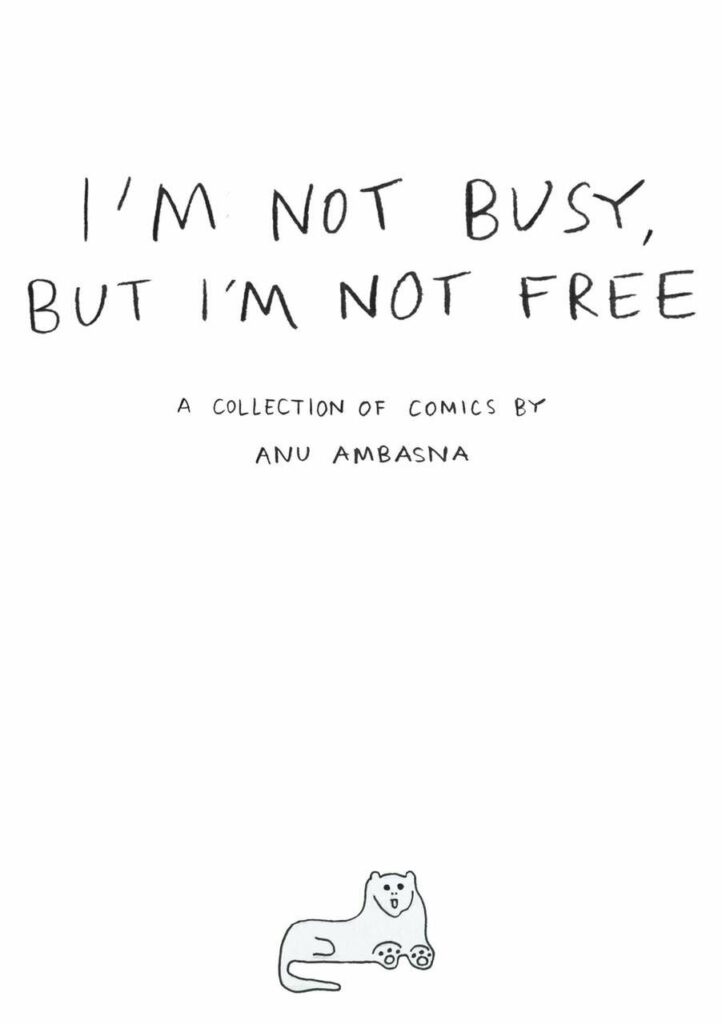
Space for Black Hair
Created and designed in the Bronx by Black-Puerto Rican artist Sabrina Sims, Space for Black Hair is a warm, safe, and open exploration of Black hair across the diaspora, and all the joy, struggle, and discovery that comes with it.
The first issue was published in December 2021, and is filled with stunning, honest art from Sims’ open call submissions. Sims included a self portrait as well as “tips for doing your hair if you’re disabled/tired as hell/ super depressed”, which sits alongside poetry, collages, and an incredible Yonkoma Manga comic strip by Gigi Murakami about someone who is running late and forgets they haven’t done their hair.
“I think the most important part of this zine is the community. We made a zine together from scratch. So many people have supported the zine because they believe in our love and hard work. The fact that I’ve helped affirm the contributors & their creativity feels meaningful in a deep way. That’s something we all need,” says Sims.
Sims hopes to publish the zine once a year and to create workshops and events alongside it. She also hopes to give community copies to low-income kids and teenagers.
You can order a copy of the Space for Black Hair from Sabrina’s website and keep up to date with the zine on Instagram.
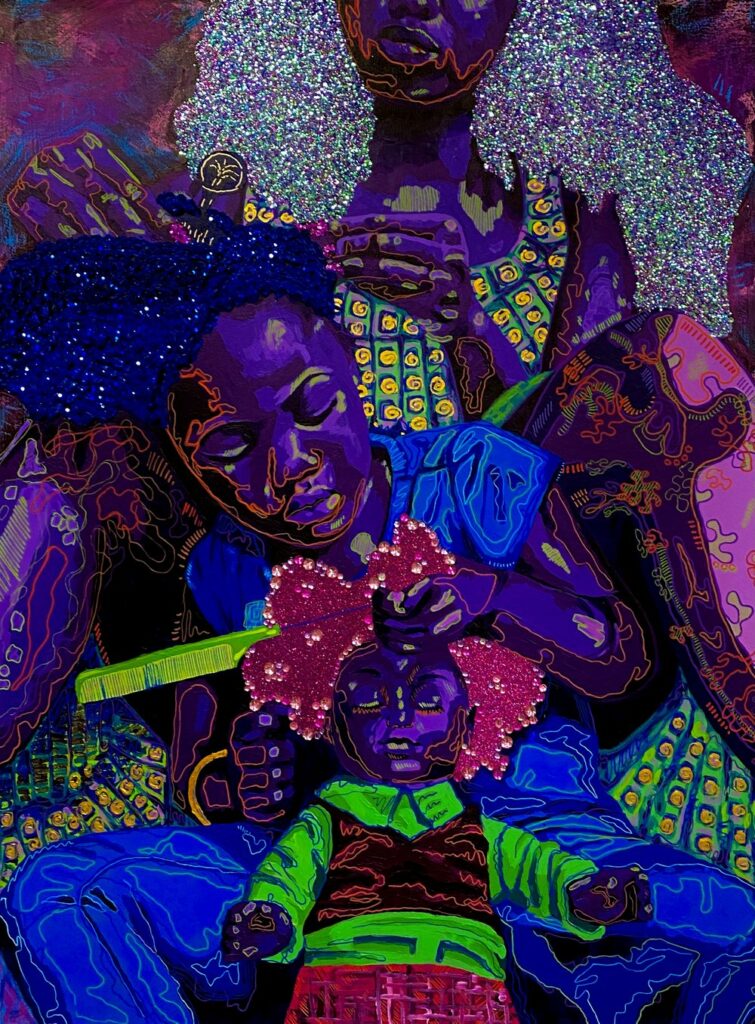
Peach Pages
Born from a desire to “be our own warriors” in the creative industries, Peach Pages aims to platform emerging Asian artists within the UK. “We don’t believe in cultural-censorship here! Come as yourself and we’ll celebrate you for all that you are,” says co-founder Kristina Pringle (Yu Shin Tsai)
“Exclusion of pan-Asian people is deeply rooted and insidious and we wanted to be active in changing that. What started off as a small grassroots project quickly grew into a community-led platform that champions pan-Asian artists from across the breadth of the arts,” says Pringle.
The last issue was a mini-zine and the platform’s soft launch in October 2021. It also marked the opening of their first in-house short film which was shot during an incredibly testing time when anti-Asian hate crime was soaring. Pringle explains: “We channelled this fear and anxiety in a collection of film and photography, the goal of which was to show the humanity, strength, and resilience of our community.”
The core team at Peach Pages consists of six Asian artists — Kristina Pringle, Soyoung Park, Akshay Shah, Jemma Williams-Fyne, Nicolee Tsin and Yiling Wong — who all work across different disciplines such as film, photography, design and performance. The community zine plans to host a series of workshops and exhibitions featuring an all-Asian lineup of artists to celebrate ESEA heritage month this September.
Peach Pages is an annual zine, with year-round community events and socials. Their next issue will be released this November and they invite Asian artists to contribute.
antinarrative
This is why Gen-Z really are going to save us from ourselves.
Last year, aged 16 and 17, Jannah Yusuf Al-jamil , Livs Sun, and Salonee Verma co-founded antinarrative, a collaborative zine “unbound by the traditional competitive constructs and westernised rigidity found in the literary and art world”. The zine is open to any POC youth creative, regardless of experience level. The powerful high school juniors are making space where “marginalised artists and writers can authentically be themselves, without ever feeling like they need to conform their craft to fit the white gaze or compete against others for recognition.”
Their first issue, titled Comfort Food, came out in January and is adorned with delicious illustrations of tasty treats. The pages are filled with pieces of writing and art that highlight the food-making process, how food can serve as a reminder of the past and a way of looking ahead, and how it is both a form of connection and an act of love. Whether it’s green onion pancakes, jalebi, luchis, lumpia, or arepa, this zine allows itsBIPOC contributors, aged from 13 to 23, to explore what it means to them in a boundless way.
“Being a part of this team has made me so grateful to have a place where we’re all encouraged, both in running antinarrative, but also in our individual work,” says co-founder Livs. “We haven’t always had smooth sailing — our first ever call for submissions received maybe like, three entries- but having this kind of environment was critical to our growth. And I think that’s what makes antinarrative so important: we’re creating a space where young creatives of colour like us don’t feel like they have to fit into this standard of intense competition, but rather celebrate their peers and their community and build off of each other.”
You can read an online version of their first issue on their website, and keep up to date with their work on Twitter.
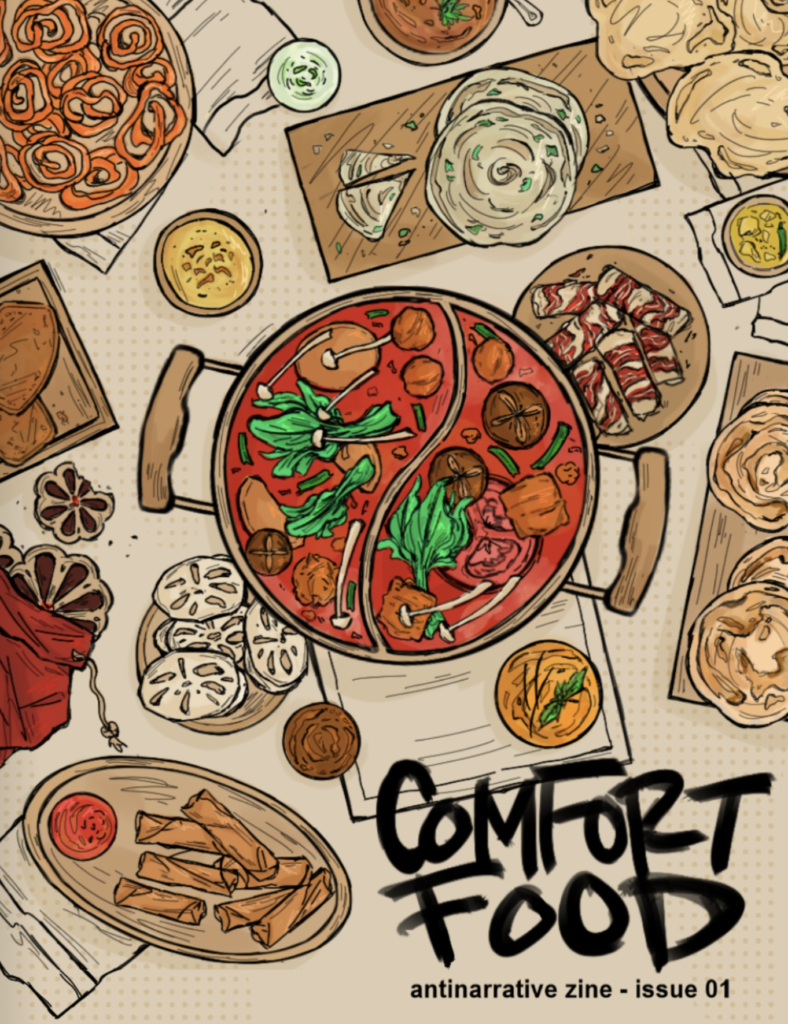
Juice Magazine
Having just released issue two titled mind and body, the Juice Magazine team are on a high. They got their first ever grant and were able to partner with Cysters and Integrate UK to offer paid commissions to 49 marginalised creatives. The magazine and collective aim to “facilitate equitable opportunities, representation, collective care and collaborative endeavours for South Asian creatives,” explains 20-year-old co-founder Evelyn Miller.
Their most recent issue is a “necessary intervention and reflection given the disproportionate infliction of illness, loss, grief, and increased racism on South Asian diaspora populations as a result of Covid-19”. It includes drawings, paintings, photography, poetry, opinion, book and film reviews, and interviews investigating wellbeing and community healing, all encased within a vibrant, dreamy cover. The team of ten young UK and Canadian South Asian creatives collaborated with Cysters to produce a zine, Chronically Creative, which explores mental health, reproductive health, and stigma through art and writing.
You can purchase a copy of their most recent issue alongside the Chronically Creative zine on their website, and keep up to date with their activities on Instagram.
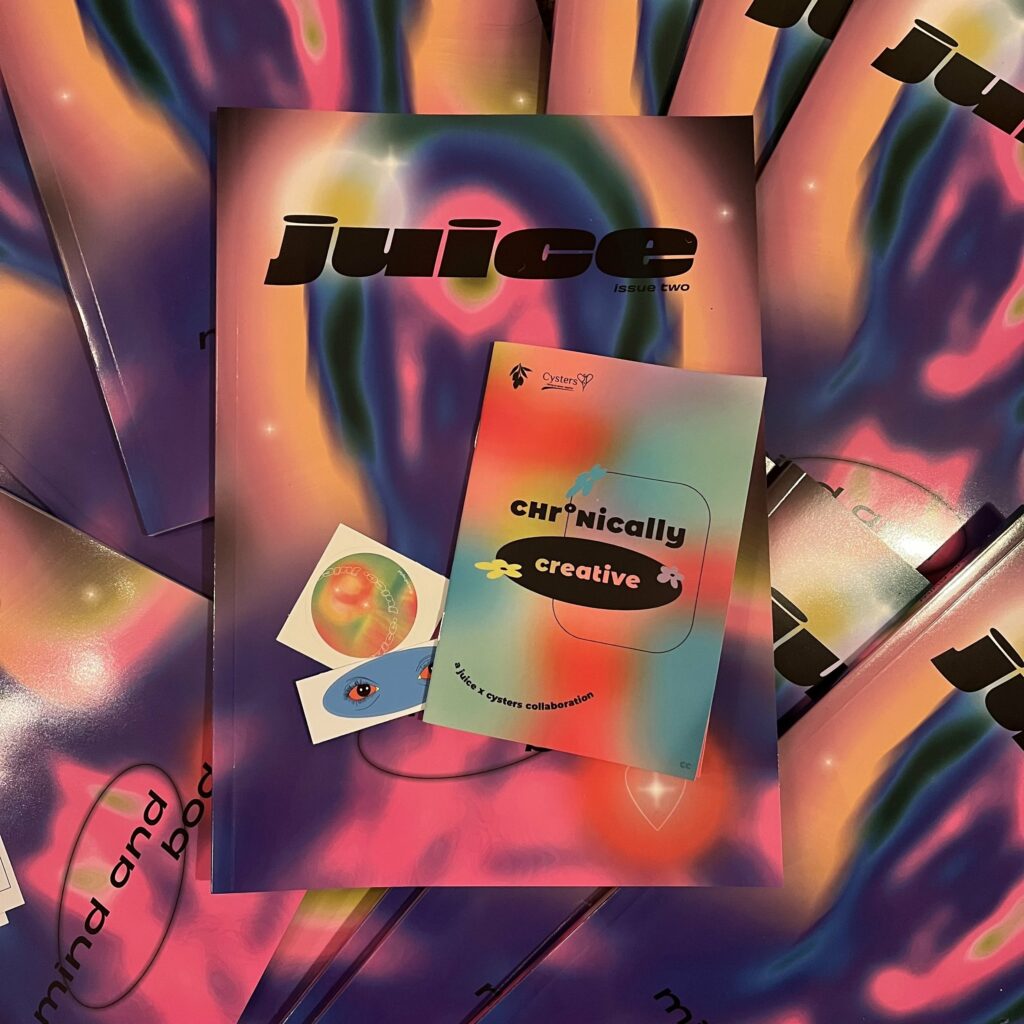
Zindabad
19-year-old Cia Mangat started Zindabad zine from her student accommodation in Wadham College, University of Oxford while feeling very disillusioned and isolated in 2021. Zindabad means ‘long live’ in Punjabi and Urdu, and Cia wants the zine to “showcase how the experiences of third culture kids might overlap or diverge.” She continues, “Having a print zine means I can play around with pairing pieces of art or writing that have completely different cultural backgrounds, but are fundamentally trying to respond to the same kind of questions.”
So far there have been two issues. The first themed diaspora??? was released in April last year and the second edition aunty issues! was released in August 2021 and. In order to make it as accessible as possible, Cia collected recordings of contributors reading their pieces and released a free audio zine on Spotify and Apple Podcasts that people could listen to alongside the issue. One of Cia’s favourites was Nazmia Jamal and Gargi Bhattacharyya’s joint essay about their experiences of auntyhood. “It felt like sitting at their kitchen table and listening in on a conversation between them,” Cia says.
“I feel incredibly privileged to get to run Zindabad — lots of its contributors are quite young and I feel lucky to be publishing them in print for the first time, and getting to amplify their work to people across the world,” Cia explains.
The third issue, shame / desire, is set to come out later this year and Cia is recruiting for a team, taking applications from “anyone who identifies with ‘diaspora’”.
You can buy physical and digital copies of the first two issues here, and keep up with Zindabad on Twitter.
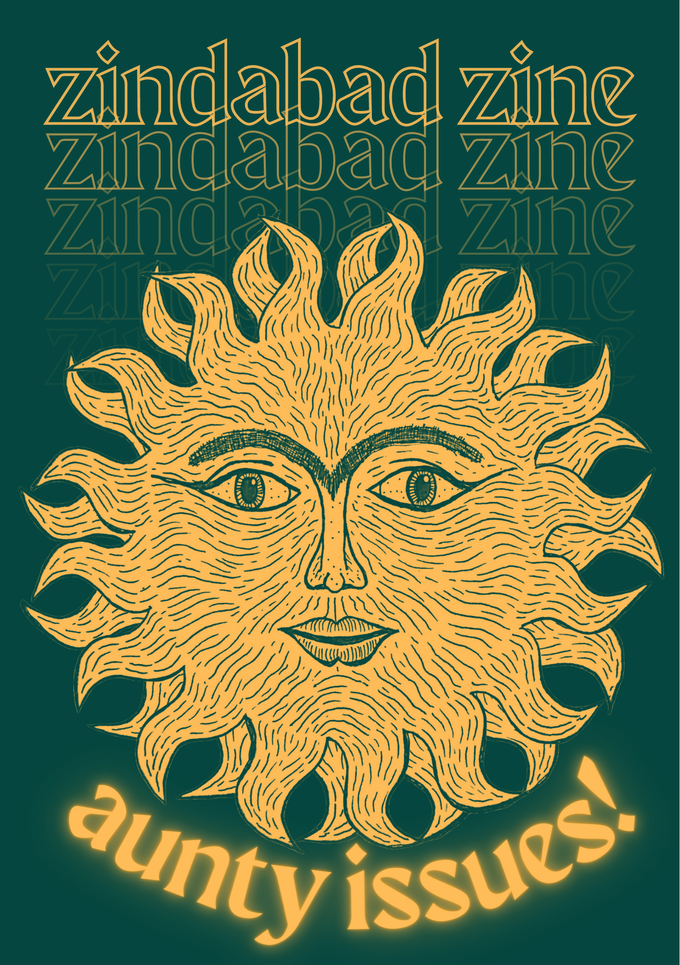
Oestrogeneration
June Bellebono founded Oestrogeneration at the end of 2021 after being “frustrated at the prominent transmisogyny and transphobia in the British media landscape and the lack of ownership over own narrative.” The online magazine platform aims to highlight the voices of trans women and transfeminine people in the UK, and they publish two pieces a month as well as covering time-sensitive news.
In January, the platform’s first two commissioned articles were published. One focused on seeing transphobia as a materialistic issue, and one on grieving queer male relationships as a trans woman. “Both were beautiful, poignant and incredibly well received,” says 28-year-old Bellebono.
The platform has just received funding from charity Grand Plan to kickstart an interview series with trans women and transfeminine people of colour in the UK. Bellebono hopes that the platform can continue to “showcase the depths and variety of our voices in their entirety.”
You can keep up to date with Oestrogeneration on their website, Instagram, and Twitter.

sweet-thang
sweet-thang has evolved from its early days as a Blogspot site. So vintage. “I started reading up about zines and their history, and the idea for sweet-thang popped into my head. I wanted to see more Black people taking up space in the popular DIY publishing spheres,” explains the zine’s founder Zoe Thompson.
The literary zine, now in its fifth year and looking to publish its seventh edition this summer, aims to always centre and uplift Black creativity, with a focus on themes of resistance, healing and free artistic expression. Its last issue, themed Healing, gathered submissions from Black artists of marginalised genders around the world, and donated proceeds to For The Gworls charity.
“It feels so special to run a zine like sweet-thang. Not only is it genuinely fun and rewarding to be part of a creative community, but it is a vital space that is needed in the publishing industry. Creative Black voices are often drowned out by their white counterparts and are published at a horrifyingly lower rate, especially Black women. Some amazing poets and artists have told me that they’ve received further recognition or opportunities from being seen through sweet-thang — that honestly fuels my drive to keep this zine going,” says Thompson.
You can purchase previous issues on their website, and keep up to date with the zine on Instagram.
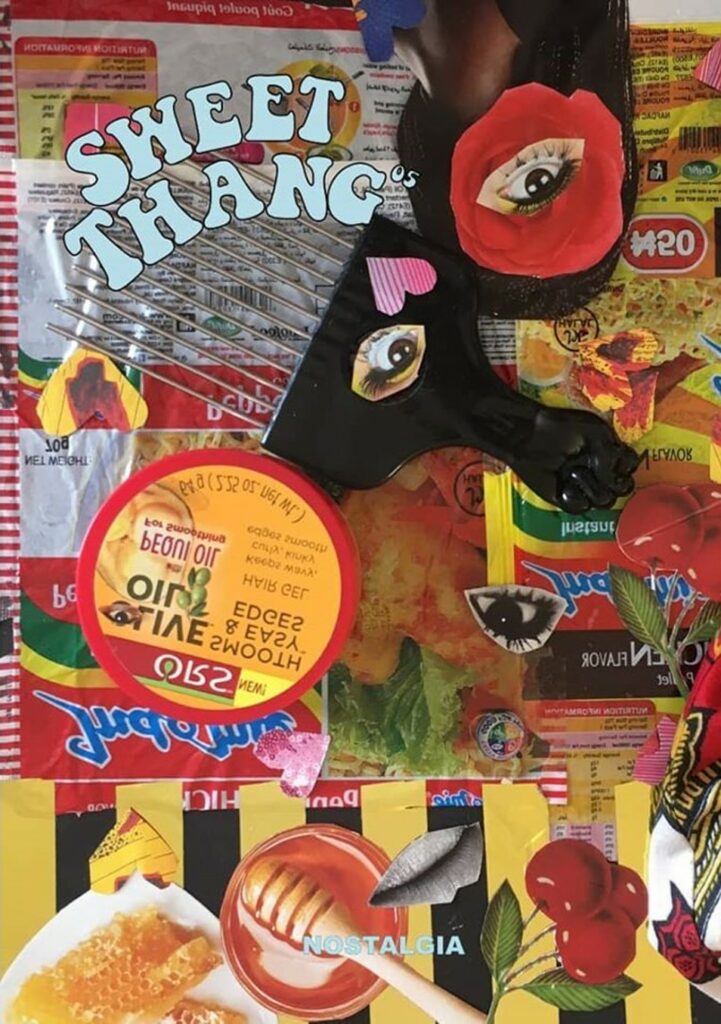
WEIRDO
Naz Toorabally launched WEIRDO in March 2020 to bring together South Asian people in alternative subcultures. “My hope when South Asian people in the alternative or punk scene read it, they’ll feel seen. I hope that South Asian people outside of these subcultures gain a better understanding and appreciation of us weirdos. I hope that white people in the alternative scene also pick up a copy and accept that we are part of these communities as much as they are,” she says.
The second issue of WEIRDO, The Music Issue, came out in November 2021. It’s a collection of interviews with South Asian people working across the rock/alternative/punk music industry. This includes Sonya Madan (Echobelly), Laila Khan (Sonic Boom Six), Ian D’Sa (Billy Talent) and Ashrita Kumar (Pinkshift), as well as people working in other parts of the industry like Vinita Joshi (Rocket Girl music label), Riz Faroqi (Unite Asia) and Yasmine Summan (On Wednesdays We Wear Black podcast).
Toorabally is aiming to publish the next issue in September this year and is hoping to raise some funds through merchandise in order to pay writers for the first time. Beyond that, her hopes are to secure some long-term funding in order to make a series of mini-zines, set up a music label, and continue to develop a platform where South Asians can meet.
There will be an evening celebrating two years of WEIRDO at the Museum of Youth Culture, as well as a workshop on South Asian representation in Punk with Toorabally. Keep up with the community on Instagram.
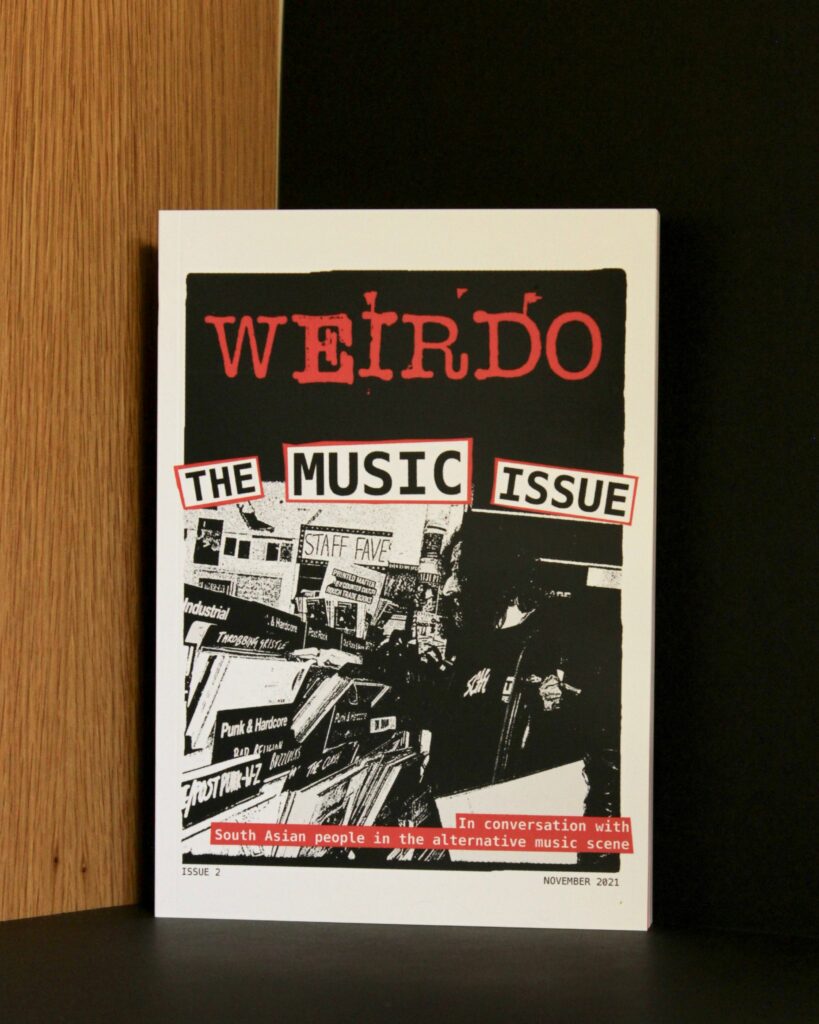
chicken + bread
The delicious and comforting pages of this zine make you feel nostalgic for food you’ve never even tried. For me, the love letters to rasmalai, honey nut Cheerios, and prasad were a happy reminder of my childhood, but then it’s an even bigger treat to explore people’s connection to other foods like okra, ultra-six chicken wing boxes, and the Pizza Go-Go family meal deal.
Founder Hope Cunningham wants to “celebrate food as art and centre people of colour”. She says: “I also think it’s really important to centre people of colour in this narrative, being a Black woman of Bajan and Ghanian descent. All too often celebrated chefs in the UK are white men when there are so many talented home cooks out there who are grandparents, aunties and uncles, and mums.”
The first issue of the annual zine was released this year and sold out in 17 days of launching. It explored the theme of nostalgia, and Cunningham is also working on a video series to further explore these themes.
She hopes chicken + bread will become a full-fledged media company creating all kinds of food content that centres people of colour, so follow them on Instagram to keep up to date, and you can buy a copy of the zine here.
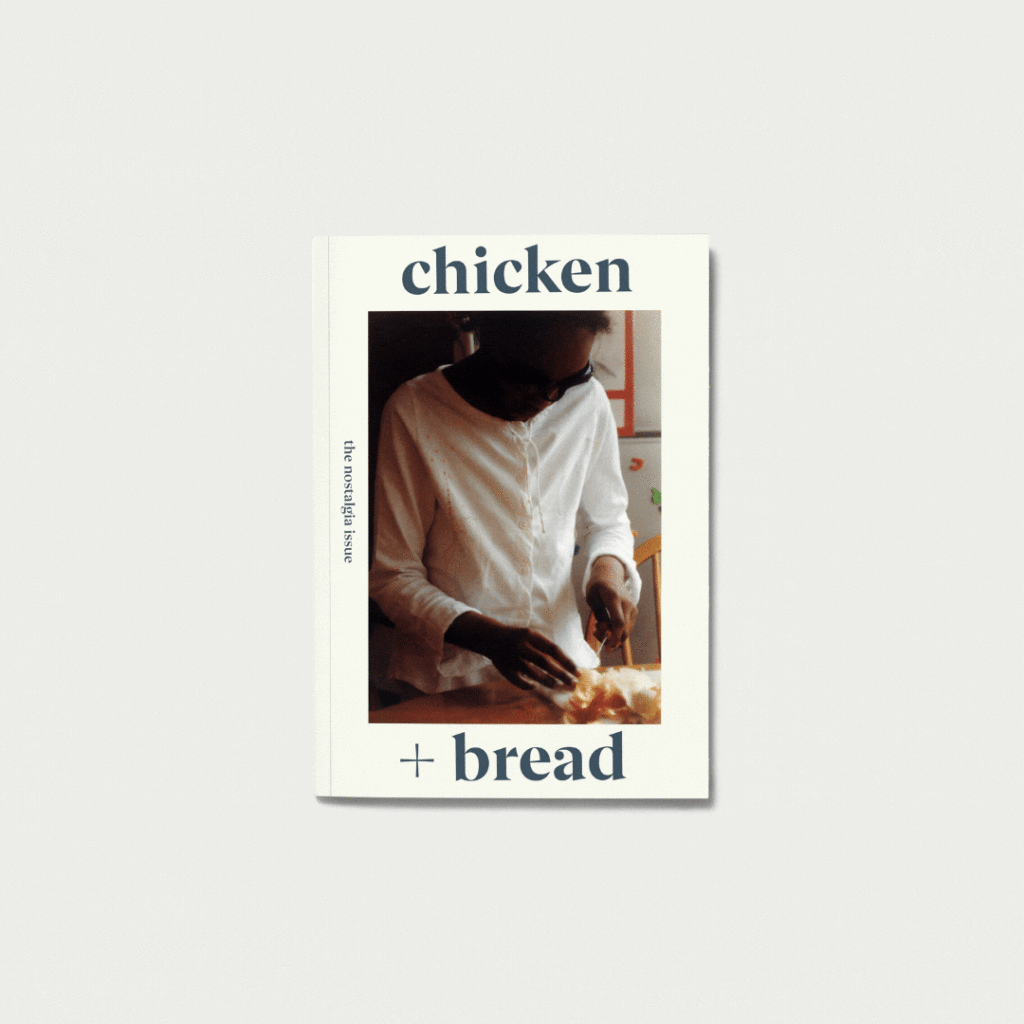
Inside a Black Girls Mind
Inside a Black Girls Mind started as a place where founder Tyra Adeniji, who says she has always struggled to express herself as she is autistic, could talk about issues that interested her, and display her creative work. Then in 2019, she decided to transition into a zine. “I wanted to create this to be a space where young Black and Brown women could talk about our experiences, things we enjoy, topics we are interested in and a space where ultimately, they could authentically be themselves,” she says.
The publication, which launches its first-ever printed version in the next month, aims to “give Black women a platform to creatively express themselves”. The first print issue is titled The Hairitage Issue and will display a collection of poetry, artwork, articles and photography all inspired by hair and heritage, with a particular focus on the 90s and 00s.
“Being in community with such creative black women has been necessary, especially during these times and I am glad I had the opportunity to be a part of something that celebrates our blackness,” says project leader and design editor Naya.
You can look out for their first print issue on their Instagram or visit their online edition here.
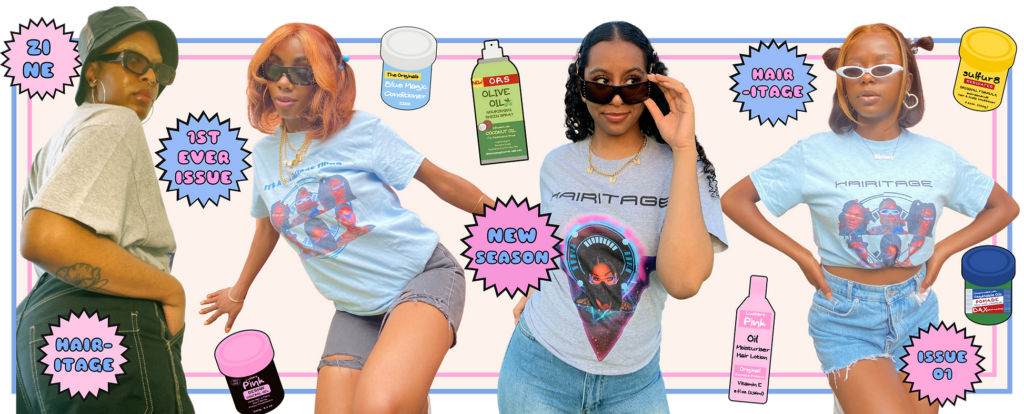
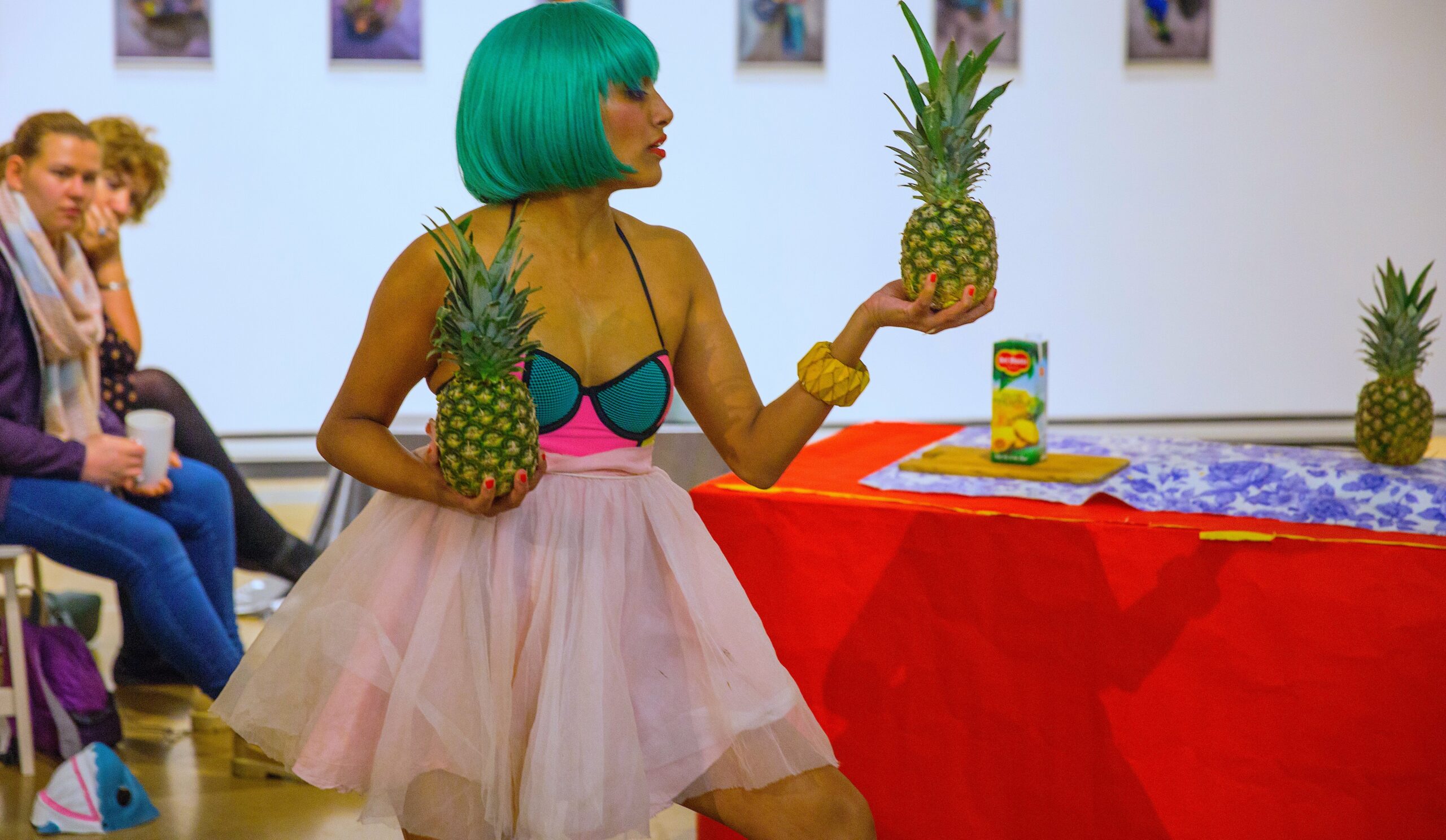
Meet Onyx, the zine-making collective magnifying the voices of disabled people of colour
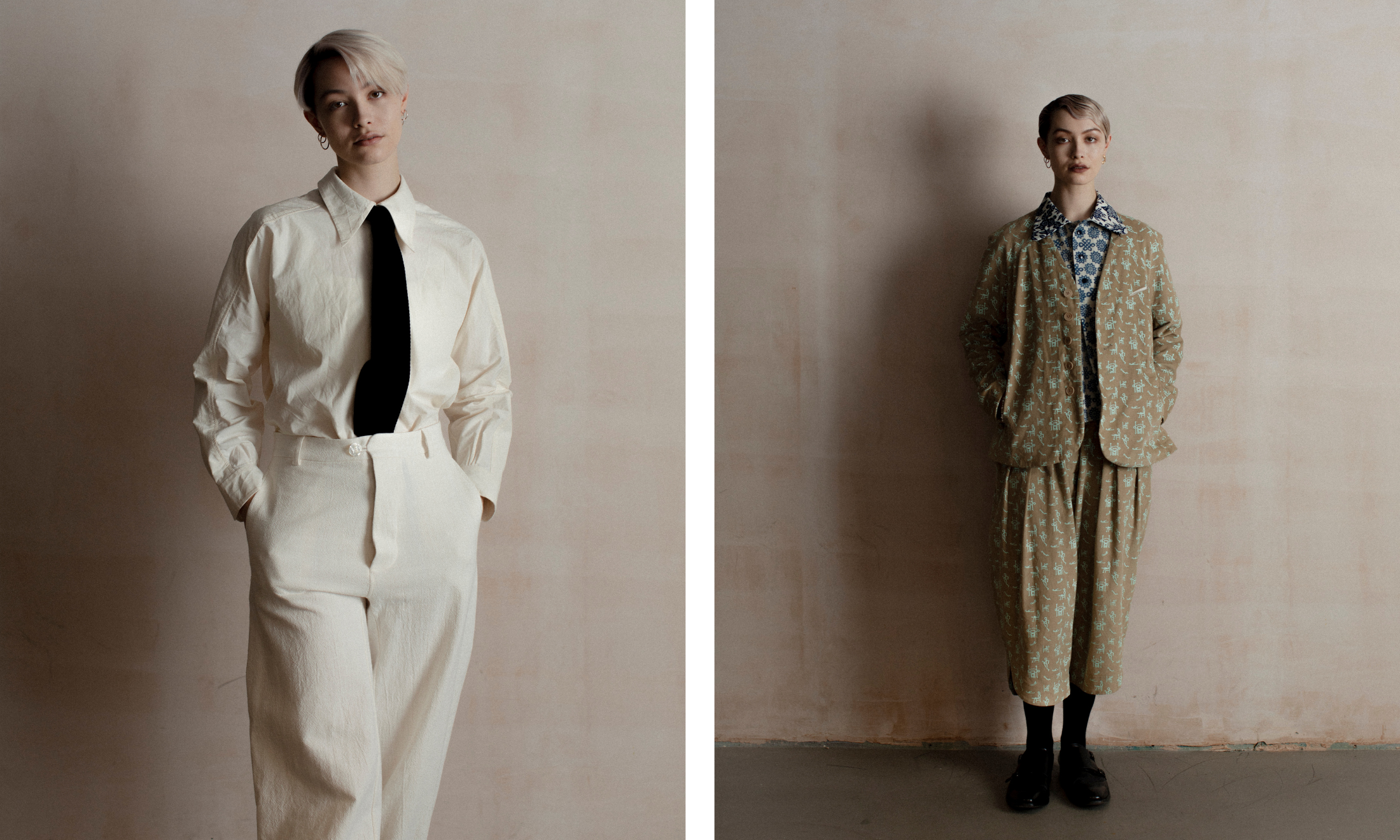
This fashion designer is bringing photos from a 1930s Chinese magazine to life
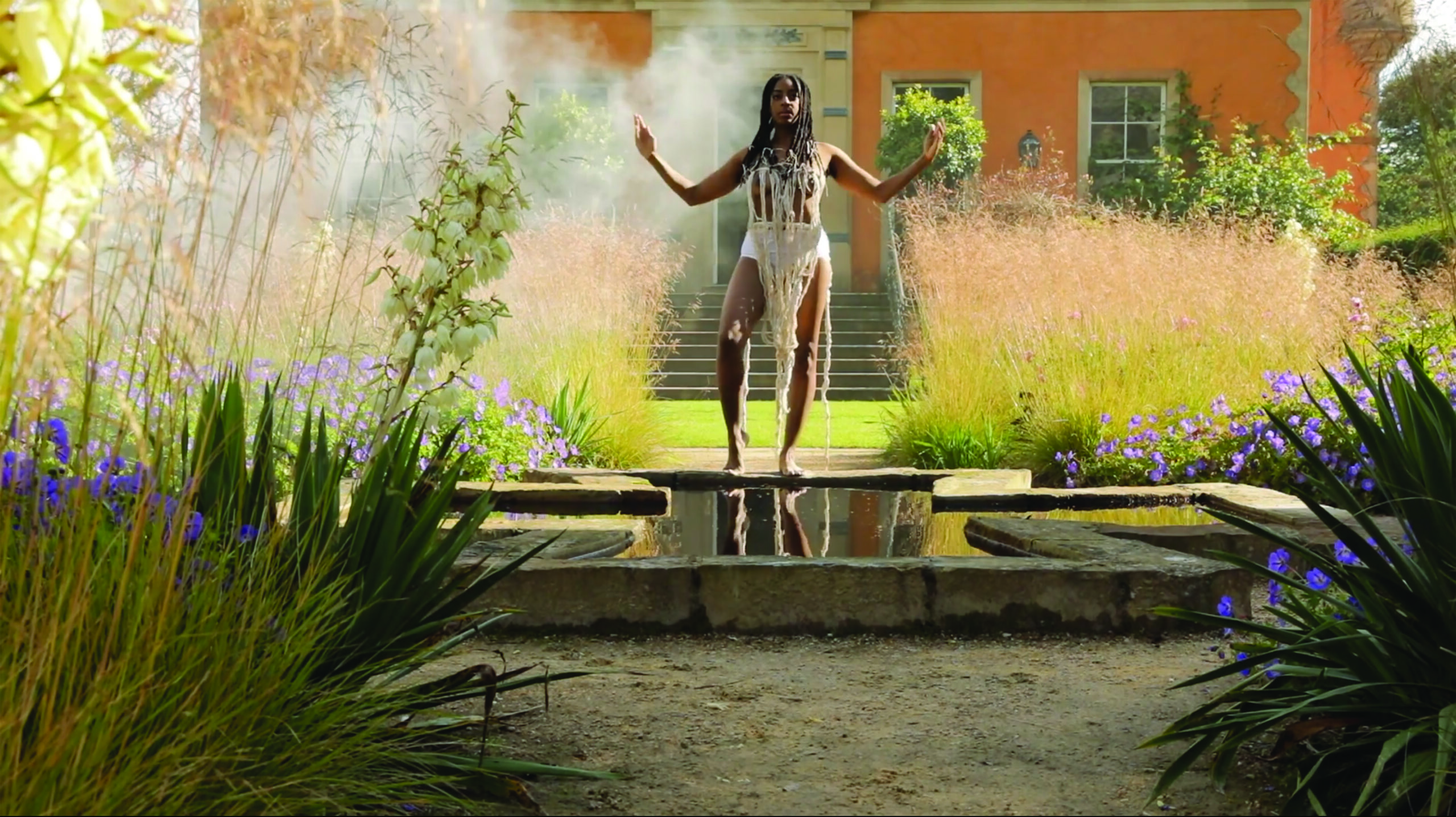
Here’s a forecast of what to expect from art next year
